Summary: We all want to help our kids prevent the “summer slide,” but educational summer activities for kids don’t have to be boring worksheets. A few ideas for fostering summer learning through everyday activities}
It’s summertime. We are all supposed to be on a more relaxed pace, right? No more homework or science fairs, at least for a few months. But all over the place, you see workbooks for preventing the “summer brain drain” or online programs to help keep your kids academically ahead for the next school year.

None of these things are inherently bad. We do want to keep their little minds active and include some educational summer activities for kids during the time off. I’ve committed to making sure my boys get plenty of reading time in this summer. But I’ve also committed to simplifying this summer and that means not so much pressure to keep up. Call it the “lazy way” or minimalism but either way, kids do need a real break in the summer. Summer is a time to slow down.
How Can I Make Summer Learning Fun?
I have written a lot about the value of play-based learning here on the blog (and elsewhere). This has mostly centered around young children (birth-preschool age) but I really do feel this playful learning approach can extend into the elementary years (and perhaps beyond). Summertime is prime time for playful learning. What better time to take an interest that your child has and run with it and see how much they can learn from it.
In past summers, my sons have been interested in worms, ants, slugs, snails, and cowboys, just to name a few. Based on their interests, we have read books on these topics, had ant farms, tadpoles, cowboy museum excursions, etc. This is where real learning takes place, in my opinion.
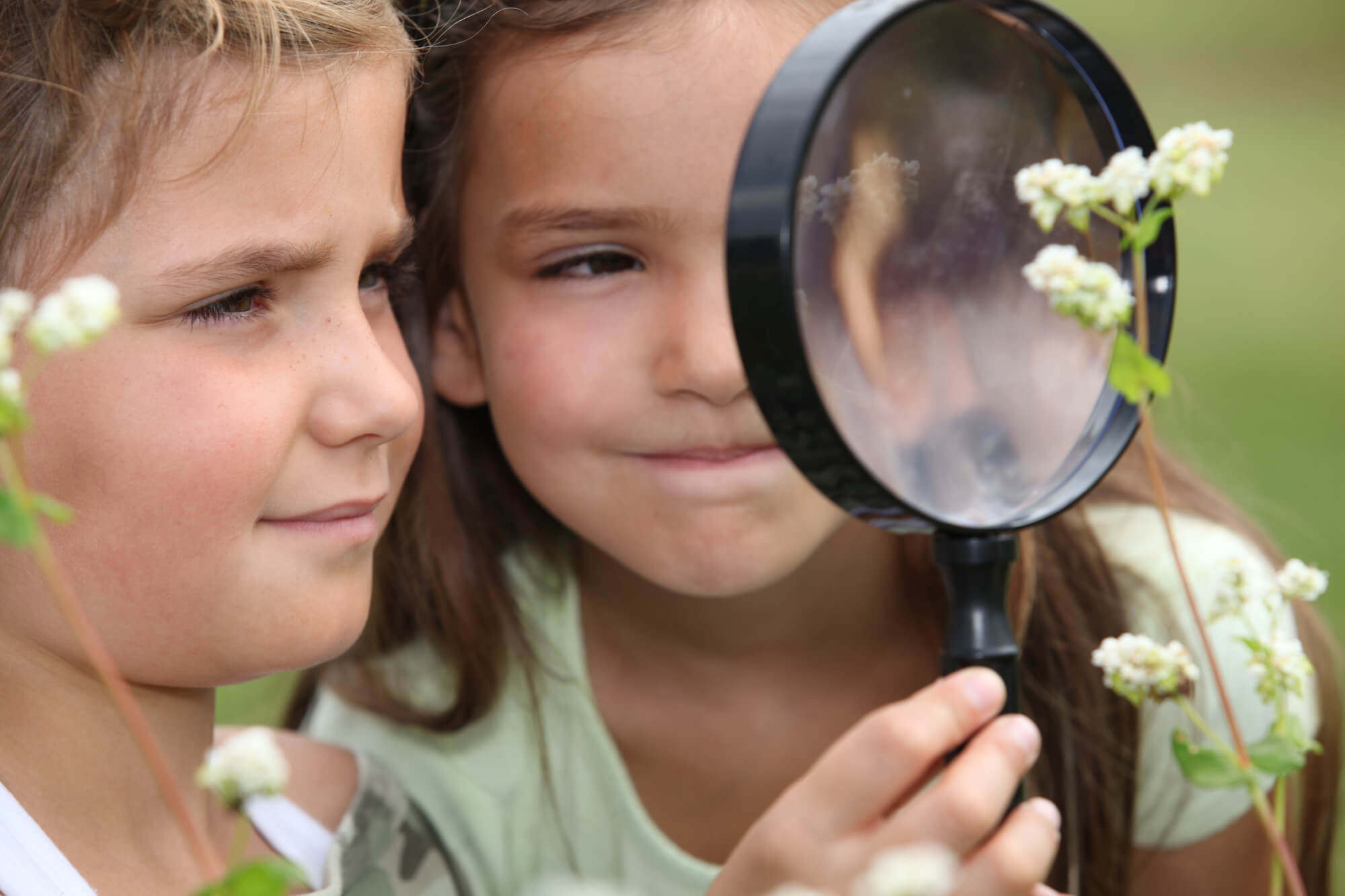
**This post contains affiliate links. Purchasing through these links helps support this blog (thanks!) at no additional cost to you.
But, you may ask, what can kids learn from play? Part of the attraction of academic-based early education is the learning is tangible, not subtle. When a child is working on “drill” worksheets, you can ask them what 2 +2 equals and they can answer. The effects of play-based learning are often more subtle so we adults are not as impressed with them. But that doesn’t mean the effects are any less real.
Related reading: The Fallacy of Early Academics: Why Play-Based Preschool Matters
The point is that educational summer activities for kids don’t have to fit into the “box” of stereotypical “learning activities.” So let’s think about a summer day with typical summer activities and look at what your young children are learning (without you even trying). If you work outside the home, no worries! Read through these and suggest to your childcare provider (i.e., nanny, babysitter, etc.) how these might fit into their day. Chances are, they are probably already doing many of these.
Fun (Simple) Summer Learning Activities
Breakfast
You ask your older child(ren) to help make breakfast for themselves and their younger sibling(s). They toast bread, spread on some butter, and maybe microwave some bacon. Older, more ambitious kids can learn to make scrambled eggs or pancakes.
Lessons learned: responsibility, caring, fine motor skills
Outside Play
The kids run outside to play. You might try this game with them:
Bounce that Ball
My newly-minted 4rd grader loves math so he actually likes to practice math skills like how to represent and compare data using simple graphs. But with warm weather finally here, who wants to sit inside to practice? Head out to the driveway, ball in hand, for a bouncing challenge. Then use those results to make a colorful graph that lets your child compare his results to those of the challenger (you!)
Even if they wipe the floor with you, don’t despair. A rematch gives the loser another shot…plus your child gets another crack at graphing practice.
What You Do:
- Have your child bounce a ball in place as many times as she can for one minute. Time him with a watch or timer. Record the number of bounces.
- Now, it’s your turn to bounce the ball. Have your child time you and record the number of bounces.
- Make a pictograph to show your results. Draw a chart with two rows and two columns. In the first column in the top row, have your child write his name. Write your name underneath his in the first column in the bottom row. Using a marker or crayon, have your child draw a ball for each of his bounces. In the column opposite your name, show your number of bounces in the same way.
- Discuss the data on the graph. Ask your child what each ball represents. Ask him who had the most bounces. Ask him how he knows this. He may say it’s by looking at the graph or by counting. Explain to him that many times you can look at a graph and know which person has the most and which person has the fewest, without even counting!
Disappointed with the results? Demand a rematch! And get in some extra graphing in the bargain…
Lessons learned: eye-hand coordination, counting, cooperation
Related reading: The Reverse Bucket List Summer: Helping Kids Grow in Gratitude
Lunch
You decide to do a read-aloud while you gather for lunch. Here are just a few that we love (even the 3rd grader likes these):
Older kids might enjoy a new magazine subscription to spark their curiosity. I find that if I just leave magazines like these laying around the house or dinner table, they will get read by my children (with little encouragement from me!). Here are a few of our favorites:
Lessons learned: reading (course), quiet listening (this is a hard one in my house), vocabulary, following instructions.
Related reading: The Revealing Reason Why Kids Love Video Games
Quiet Time
If you are like me, an hour or so of quiet time in the house is crucial. Little ones nap, older ones entertain themselves quietly
Lessons learned: self-control, boredom (it’s a good thing), creativity
Related reading: Calming Activities for Super-Active Kids
Water Play
Hot afternoons mean plenty of water play–swimming, sprinklers, slip and slide, pouring, etc.
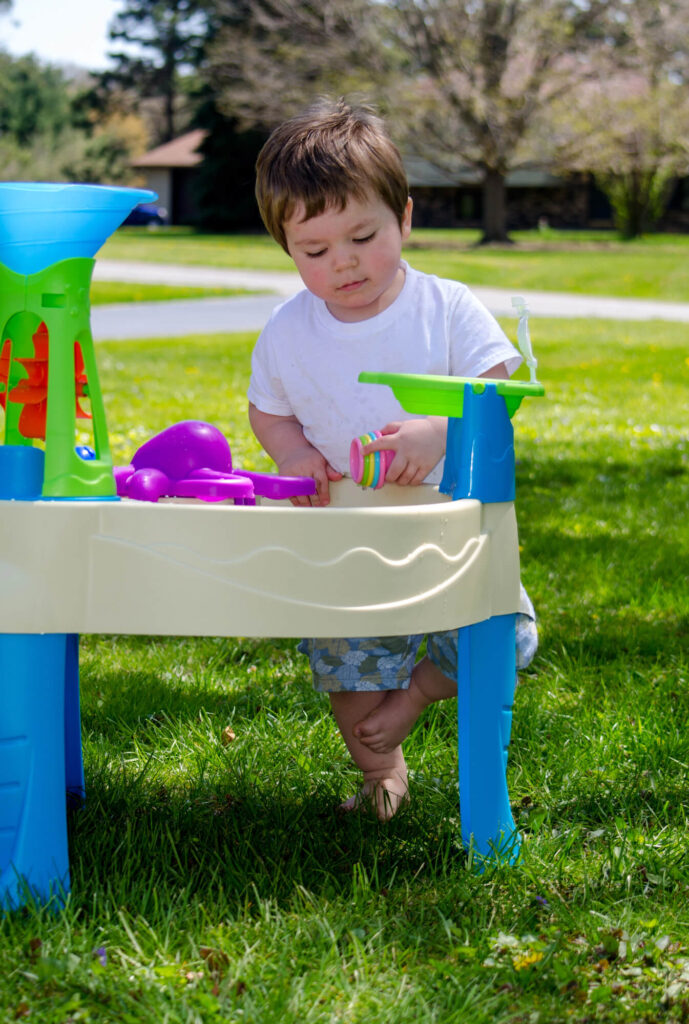
Lessons learned: properties of water (volume, mass), pouring skills (eye-hand coordination)
Pretend Play
The kids decide they want to dress up like their favorite characters–superheroes, cowboys, cowgirls, police, animals, etc. Believe it or not, pretend play builds social-emotional skills in a wonderfully fun way. While staying “in character” kids have to use self-restraint and emotional modeling skills.
Lessons learned: life roles (practice for later), divergent thinking, self-control (to remain in character), imagination
Dinner
You ask the kids to help you prep dinner. Perhaps they can use a kid-safe knife for chopping or they can measure out ingredients.
Lessons learned: measurement, fine motor skills, nature (how veggies grow), healthy eating habits
Bedtime
You read stories before bed with your kids. Perhaps you reflect on the day and ask what was their favorite part. Perhaps use these cards to get the conversation started.
Lessons learned: reading skills, self-regulation (calming before bed), language (discussion with parents), quiet reflection/self-awareness
In one simple summer day, you have just gifted your kids a day full of learning–no worksheets required. Enjoy summer!



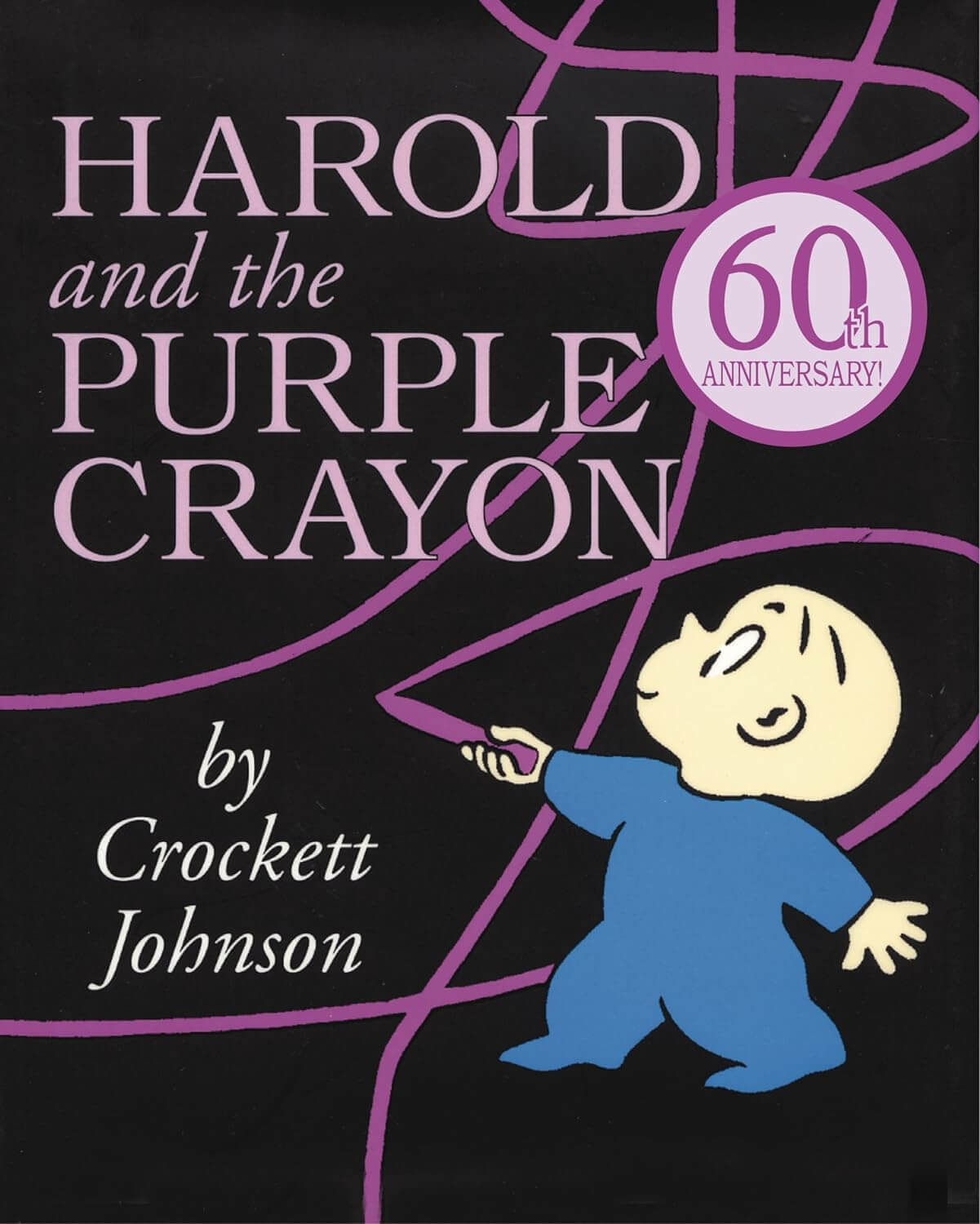

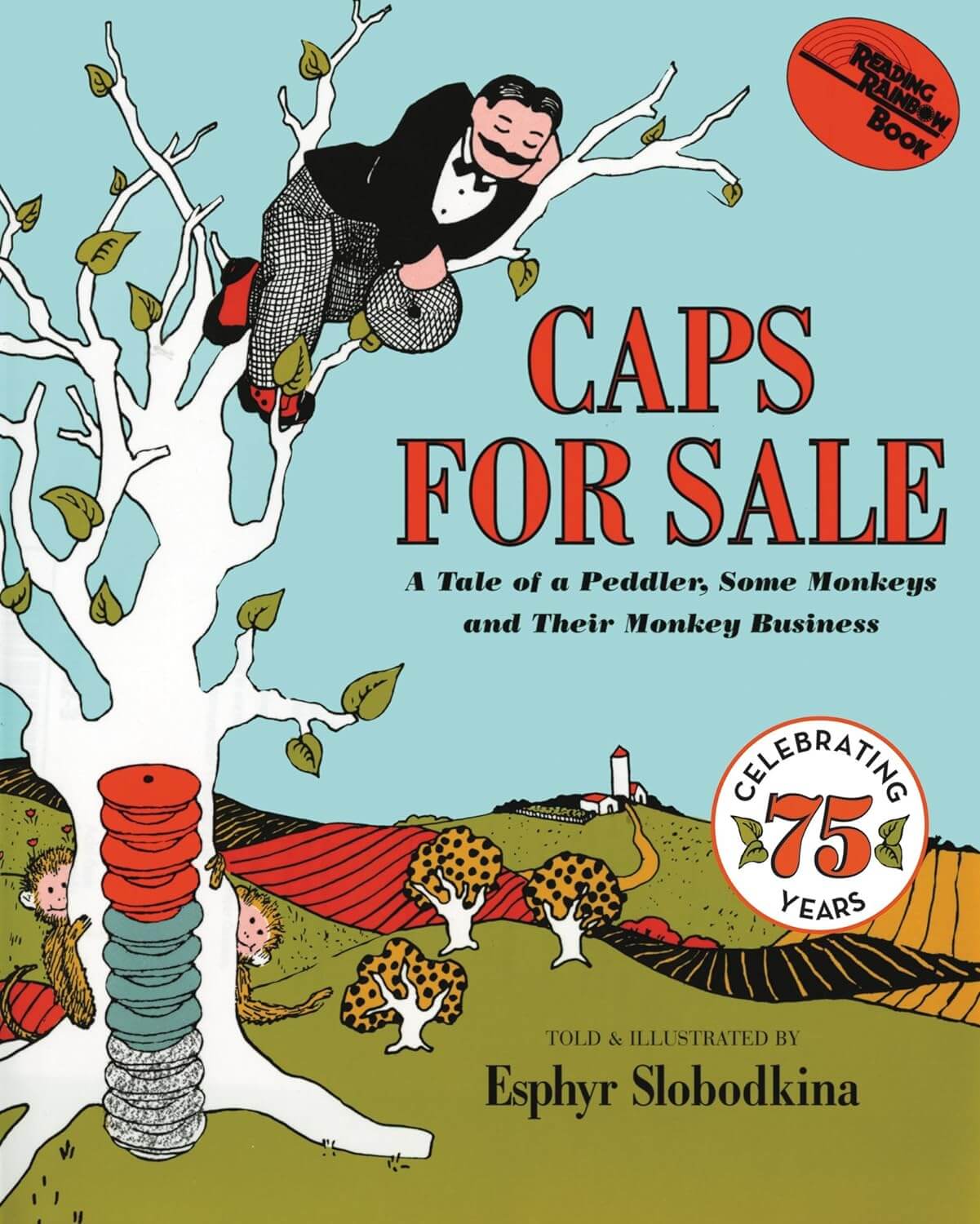


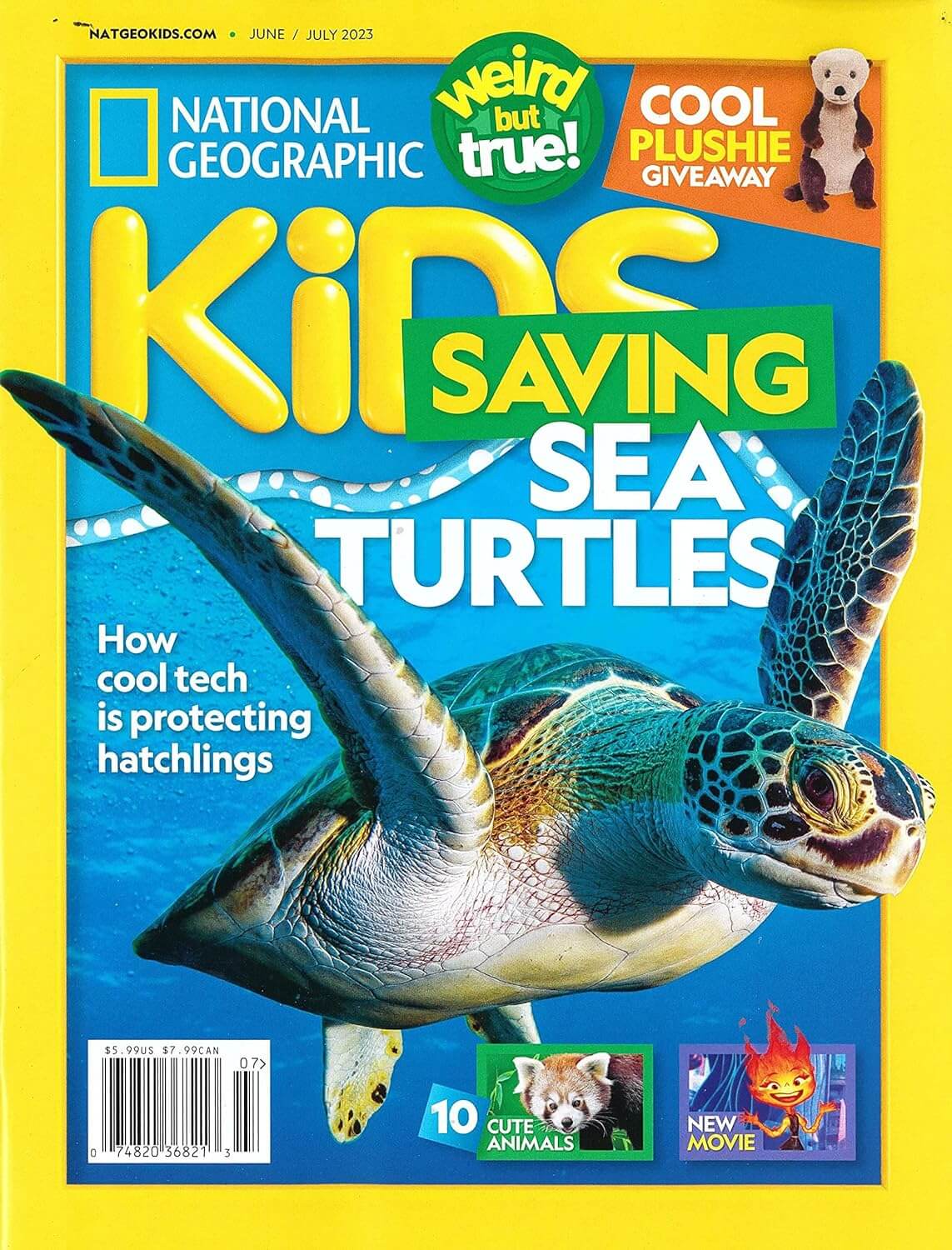

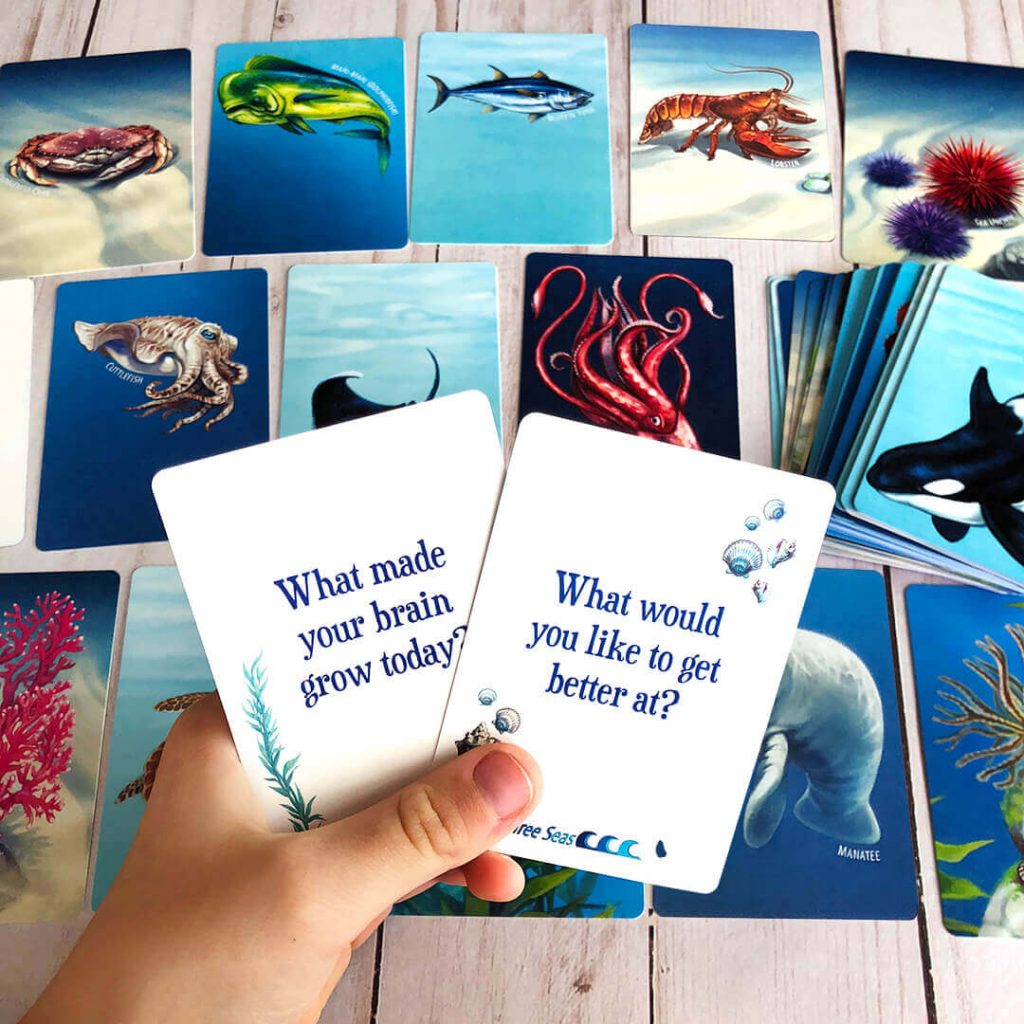

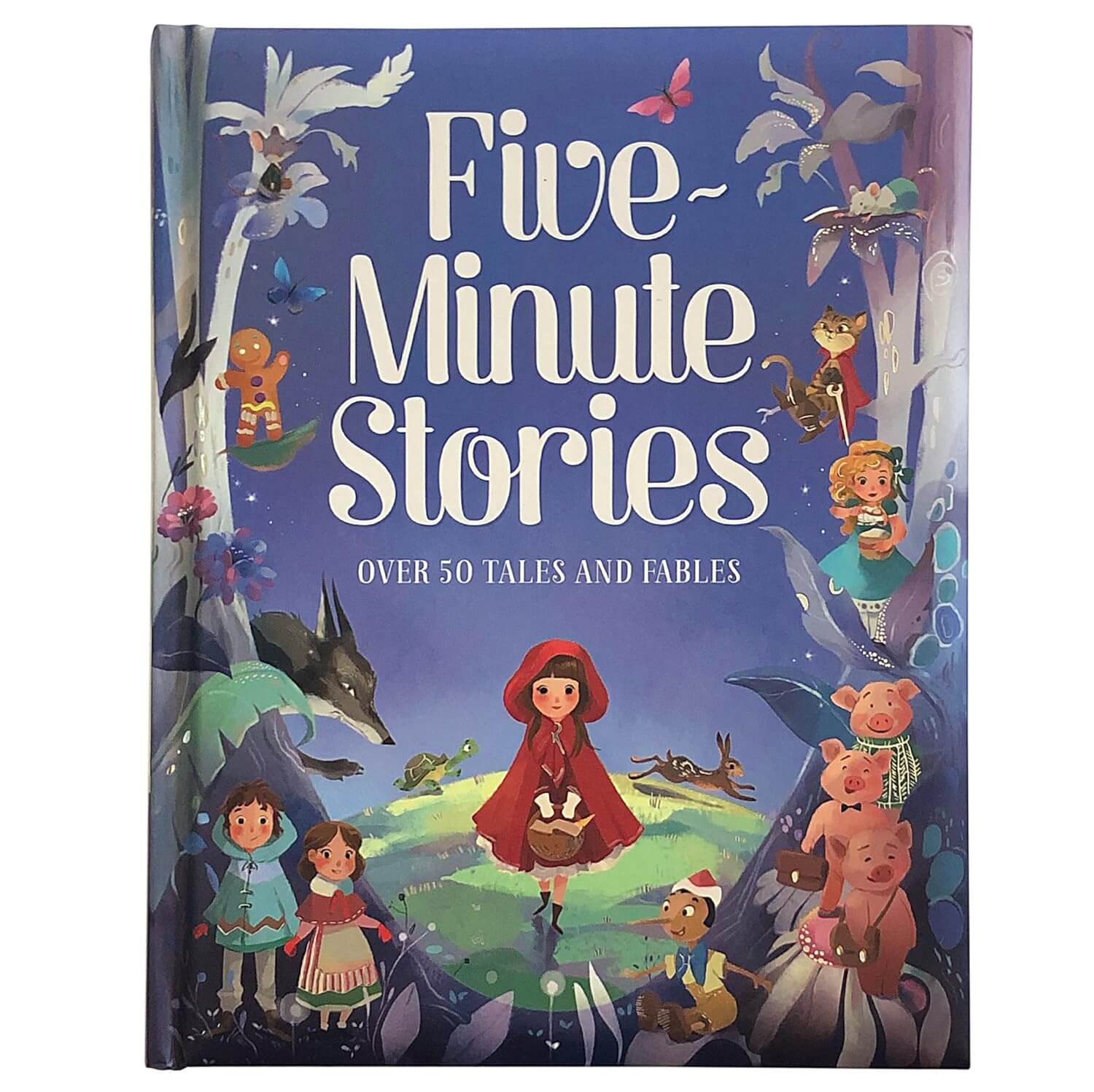
Leave a Reply